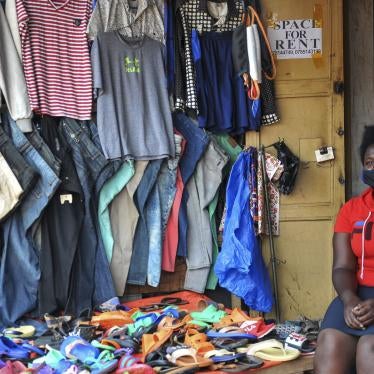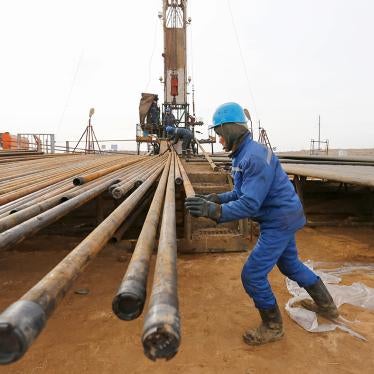Under Covid-19-related lockdowns in 2020, most violent crime in France dropped. Reports of domestic violence and rape went up.
The pandemic contributed to a 30 percent increase in reported domestic violence cases within two weeks of lockdown restrictions in March 2020. Police home interventions rose almost 50 percent.
Governments can take important steps so that domestic violence survivors can seek help without losing their jobs—yet French law and company policies have not caught up. A letter by 34 leading feminists published in Libération last month shows growing frustration.
France aims to be a champion for gender equality globally, including through hosting the Generation Equality Forum in Paris from 30 June to 2 July. This forum will bring together governments, civil society, and corporations to commit to a 10-year “acceleration plan” on gender equality, including on ending gender-based violence.But to be an effective global leader, France must also act at home.
France is finally moving closer to ratifying the landmark ILO Violence and Harassment Convention (C190), which sets out global standards for preventing and responding to violence and harassment at work. This is a positive step. But signing on to this treaty is just the beginning, and the true test of progress will be whether women in the workplace in France will benefit from these new protections.
Domestic violence laws adopted in France these last two years introduced some changes, such as geolocation bracelets to help enforce protection orders and an end to mediation in divorce proceedings that include an abusive partner. But the laws did not address the protections domestic violence survivors need at work.
Others have done better.
Italy, New Zealand, and the Philippines have laws giving domestic violence survivors paid leave so they can take time off work to leave their partners and protect themselves and their children. Australia and Puerto Rico provide unpaid leave. Some companies, such as Facebook, provide paid leave for employees facing domestic violence.
Spain provides victims of gender-based violence the right to reduce and reorganize working time, to move their location, and to suspend an employment contract. In Brazil, judges can order employers to keep domestic violence victims employed and to let them take temporary leave from work.
Without a comprehensive set of protections addressing shelter, safety, health, and employment, domestic violence can be deadly. In 2019, 146 women were killed by an intimate partner in France, and 90 in 2020.
Fighting gender-based violence is a stated priority for President Emmanuel Macron. The Covid-19 pandemic and subsequent lockdowns and economic downturn has only increased the urgency and relevance of these protections. And the way forward is not a mystery. Feminist groups, labor unions, and other civil society group have identified gaps in French law and proposed concrete and forward-looking solutions, including workplace protections.
France should follow the lead of other countries to provide paid leave and flexible work arrangements, supporting survivors to seek shelter, counseling or legal protections without fear of losing their jobs.
French employers don’t have to wait to be mandated—they can take steps to increase protection through training and awareness-raising. Employers should not retaliate against survivors who take time off to recover or come to work with visible injuries, or whose abuser has come to the workplace and been disruptive. A key needed reform is temporary protection against dismissal for workers facing domestic violence.
Accordingly, we call on members of French parliament to support inclusion of workplace protections for domestic violence survivors in French law. They can do so through amendments to the "Accelerating economic and professional equality" and "Strengthening health prevention at work" bills pending in the Senate.
France is falling behind other countries in addressing domestic violence. Protections that enable domestic violence survivors to find safety and assistance make a difference. The time to act is now.









